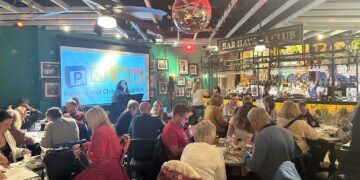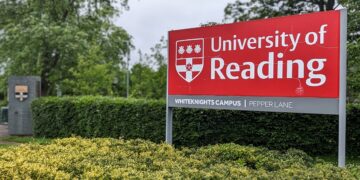READING Borough Council is inviting residents to have their say on the town’s climate strategy in a new wave of consultation.
As the current Reading Climate Emergency Strategy comes to an end next year, the council is seeking views from people who live and work in the town about how they would like the next strategy to be designed.
The council says the 2025-2030 strategy will “set out the pathway” to achieving net-zero targets across the borough.
A group of 50 people has already met as part of the Designing a Net Zero Reading deliberative consultation, which provided a preliminary set of priorities.
Residents are invited to add their comments to these priorities through a survey.
Guided discussion packs are available to download for professional groups, community, and organisational groups via Reading CAN
Young people are also invited to contribute through the Big Letter initiative, which will be read to the group, featuring contributions from schools, youth groups, and holiday clubs.
Updates on the process can also be signed up for via the Reading CAN website at: readingcan.org.uk/priorities.
Cllr John Ennis, Lead Councillor for Climate Strategy and Transport, said: “The next Reading Climate Emergency Strategy takes us up to 2030, when we are working towards a net-zero borough.
“Reading already has a good track record on tackling climate change, with a 51% reduction in the borough’s carbon emissions since 2005 and the Council is leading the way with a 74% reduction in its own emissions in the last 14 years.
“But we are now entering a critical period of time when we must all step up a gear as the effects of climate change are becoming more apparent in Reading and across the globe.
“I would encourage everyone who lives, works or studies in Reading, and organisations, to take part in this engagement process in whatever way they can so we can move forward together urgently with the next stage of tackling the climate emergency.”
Reading Climate Action Network is run by Reading Climate Change Partnership, a group of stakeholders representing businesses, academic institutions, community groups, and authorities.























